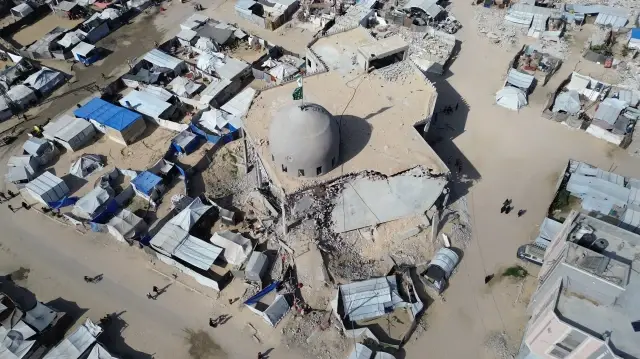300,000 Gaza students resume studies amid ongoing aid blockade

Approximately 300,000 students in Gaza have resumed their education through UNRWA programs, though most will receive remote instruction due to widespread school destruction. The resumption comes despite an Israeli blockade that continues to prevent hundreds of millions of dollars in humanitarian aid from entering the territory.
An estimated 300,000 Palestinian students in Gaza have resumed their education under programs organized by the UN agency for Palestinian refugees (UNRWA), marking a significant step toward normalcy despite the ongoing humanitarian crisis. UNRWA media advisor Adnan Abu Hasna announced that the educational initiative will involve approximately 8,000 teachers, with the potential for student numbers to increase as the program develops.
Advertisement
Hybrid Learning Model Implemented
The educational restart employs a hybrid approach, with only about 10,000 students able to attend in-person classes at schools and shelters while the vast majority will receive remote instruction. Abu Hasna explained this arrangement was necessary because "it is absolutely impossible to have two years without schooling," referencing the extended disruption that began with the COVID-19 pandemic and continued through the recent conflict.
Advertisement
Devastated Educational Infrastructure
Gaza's education system has been suspended since October 8, 2023, with most UNRWA and government schools either destroyed, severely damaged, or converted into shelters for displaced families. According to Palestinian Education Ministry data, Israel has completely destroyed 172 government schools, damaged 118 others, and struck more than 100 UNRWA-run schools. The ministry also reported that 17,711 students have been killed and 25,897 injured since the conflict began, with 763 education-sector employees killed and 3,189 injured.
Advertisement
Humanitarian Crisis and Blockade Impacts
The educational efforts proceed against a backdrop of severe humanitarian challenges. Abu Hasna condemned Israel's obstruction of relief efforts, noting that "many basic necessities, including shelter materials, blankets, winter clothing, and medicines, are not being allowed into Gaza." He warned that 95% of Gaza's population now depends on humanitarian assistance after losing their income sources, with conditions deteriorating rapidly as hundreds of thousands of displaced people live in the open with winter approaching.
Advertisement







Comments you share on our site are a valuable resource for other users. Please be respectful of different opinions and other users. Avoid using rude, aggressive, derogatory, or discriminatory language.